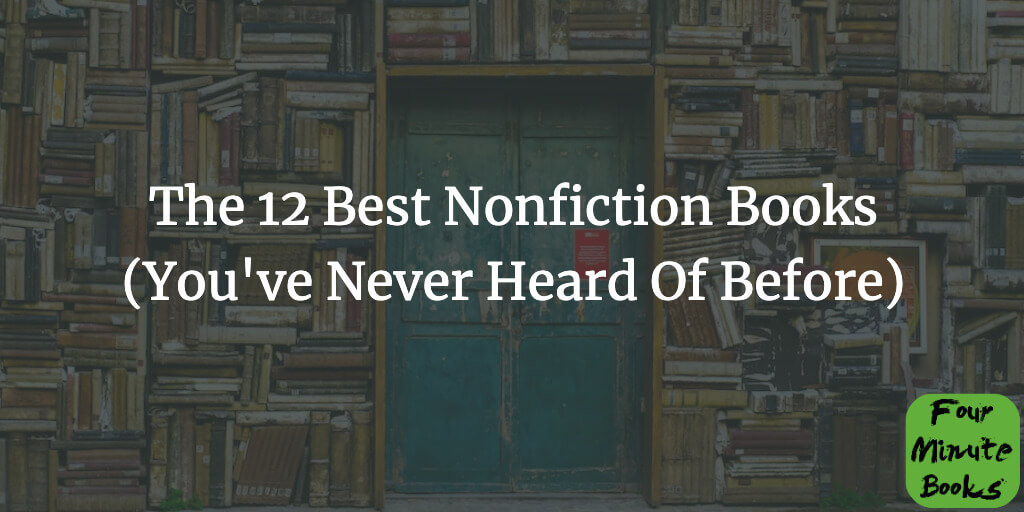
“If you only read the books that everyone else is reading, you can only think what everyone else is thinking.”
— Haruki Murakami
When you read books no one else is reading, you don’t just become a more creative person, you’ll also be more interesting. You’ll have something new to contribute wherever you go, and your mind will make connections no other mind is making. If you’re looking for an advantage in your career or even your personal life, look no further! Read what no one else is reading.
Read the obscure, the questionable, and the forgotten. Pick books that lie outside your comfort zone, that feel hard to understand, and that have an air of mystery around them. Here are 12 titles that fit that mark. Even if you’re an avid nonfiction reader, I’m sure you’ve never heard of most of them. I think they’re some of the best nonfiction books of all time, and I hope you’ll give them a try.
The 12 Best Nonfiction Books Most People Have Never Heard Of
- 1. The Practicing Mind by Thomas M. Sterner
- 2. How to Live by Derek Sivers
- 3. Finite and Infinite Games by James P. Carse
- 4. Outwitting the Devil by Napoleon Hill
- 5. The Dip by Seth Godin
- 6. Ikigai by Yukari Mitsuhashi
- 7. Managing Oneself by Peter Drucker
- 8. The Little Book of Contentment by Leo Babauta
- 9. The Authentic Swing by Steven Pressfield
- 10. Love Yourself Like Your Life Depends On It by Kamal Ravikant
- 11. The Inner Game of Tennis by Timothy Gallwey
- 12. On the Shortness of Life by Seneca
- Why Read Nonfiction Books? And Why the Less Popular Ones?
- Conclusion
- Other Book Lists by Topic
- Other Book Lists by Author
1. The Practicing Mind by Thomas M. Sterner
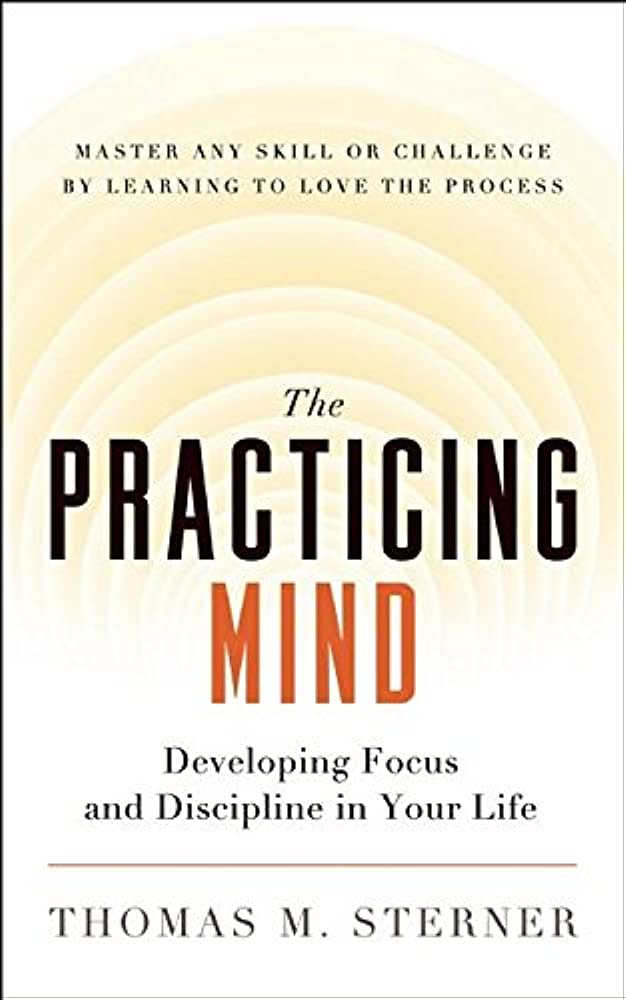
Favorite Quote
“The problem with patience and discipline is that it requires both of them to develop each of them.” — Thomas M. Sterner
The Book in One Sentence
The Practicing Mind shows you how to cultivate patience, focus, and discipline for working towards your biggest goals, by going back to the basic principles of practice, embracing a child-like trial-and-error attitude again and thus make working hard towards mastery a fulfilling process in itself.
Why should you read it?
This short book is the best guide on how to combine mindfulness and ambition that I’ve ever read. If you want to be great at what you do, be it writing, a corporate job, or being a parent, you need to master the process — and truly mastering anything takes decades.
Sterner explains how, when we humbly focus on that process without obsessing over the results, we’ll do better work almost instantly. Yet, simultaneously, we’ll find the patience we need to take the long-term view. This book is simple, inspiring, calming, fun, and to the point. I rarely see it talked about anywhere, yet I’d recommend it to anyone.
Key Takeaways
- Forget your end goal every time you work.
- Never use goals as an indicator of progress.
- Apply the Do, Observe, Correct technique to keep your productivity in check.
If you want to learn more, you can read our free four-minute summary or get a copy for yourself.
_____
2. How to Live by Derek Sivers
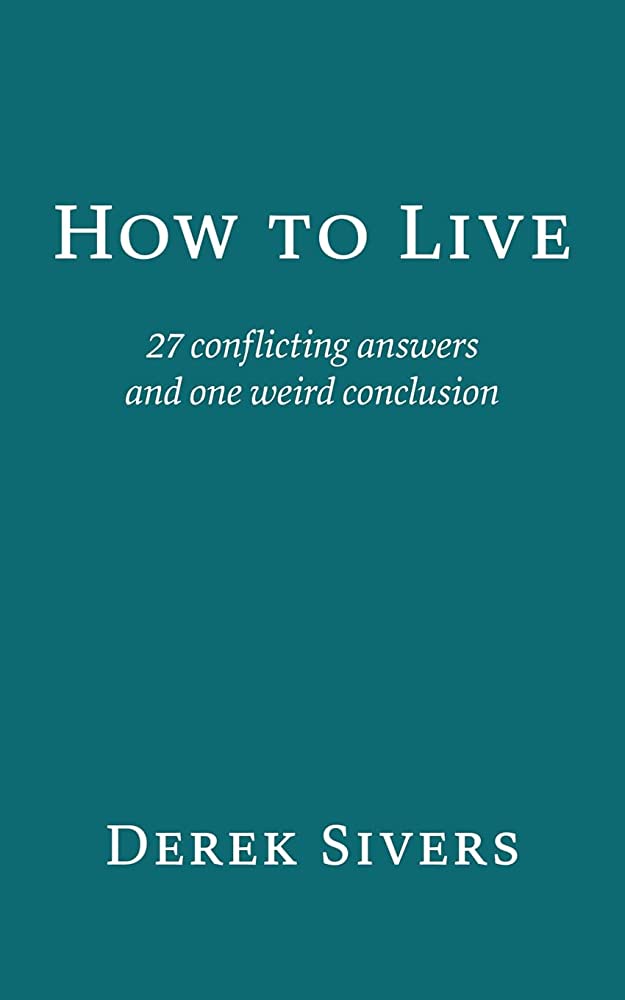
Favorite Quote
“You don’t see things as they are. You see them as you are.” — Derek Sivers
The Book in One Sentence
How to Live offers 27 wildly differing answers to life’s biggest question, thus providing plenty of useful advice along with one powerful realization: Life is not “either/or,” it is “and” — and you can always change your mind.
Why should you read it?
Derek Sivers is a well-known figure in the entrepreneurship world, but unless you’re on his newsletter, you likely won’t know that he’s now mainly writing books, and How to Live is his magnum opus.
The book provides 27 focused, highly compressed answers to one single question: “How should you live your life?” Each answer is fully convinced of itself and, in only a few pages, tries to sell you on its lifestyle. Travel the world! Make lots of money! Renounce everything! Be a hermit, make a million friends, or build useful things.
The genius of this book lies in the fact that each chapter contradicts the next — and therefore forces you to think hard about what it suggests. Sivers condensed this book from an original 1,000+ pages down to just around 100, packing everything he’s learned over several decades into a 2-hour read. Do not miss out on this one.
Key Takeaways
- For great work and deep connections, live a small, slow, focused life.
- If you want calmness and routine, live an open, moderate, independent life.
- To fully savor life to the utmost extent, live a big, fast, immersed life.
If you want to learn more, you can read our free four-minute summary or get a copy for yourself. I also wrote an essay explaining the bigger message behind the book.
_____
3. Finite and Infinite Games by James P. Carse
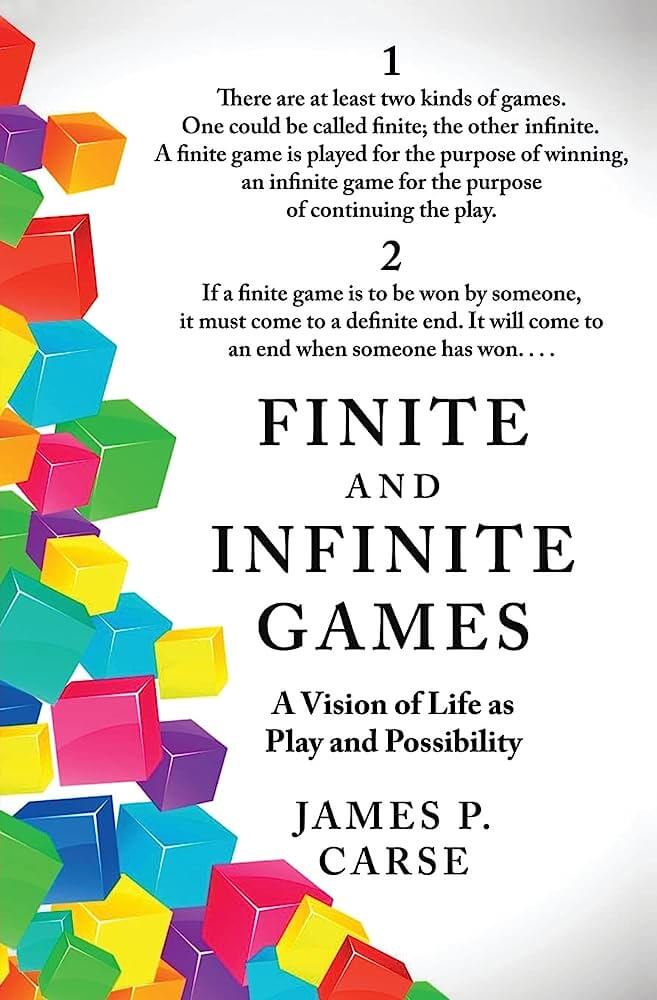
Favorite Quote
“Finite players play within boundaries; infinite players play with boundaries.” — James P. Carse
The Book in One Sentence
Finite and Infinite Games offers the theory that we play many different games in life, showing you that work and relationships are long-term endeavors and how to play them in order to win.
Why should you read it?
Originally published in 1986, this book provides an entire, spiritual yet rational way of looking at the world. It contains hundreds of clever metaphors and world plays, showing you that human activities can be neatly separated into two kinds of games: finite and infinite ones.
Finite games are clearly defined in their rules, time frame, and space. For there to be a winner, there must always be a loser. Think about sports, stock trading, or political elections. Infinite games, on the other hand, extend forever. The goal is not to win, it is to keep playing, and to keep playing, the players must keep changing the rules! Love is an infinite game. So is business, if you’re trying to build one that lasts for generations. So is life itself.
Mastering and applying these two mindsets will change how you view the world forever. Do give this book a chance.
Key Takeaways
- Finite games are played for the sake of ending them, but infinite games are played simply for the sake of playing.
- No one can force you to play a game, and winning isn’t everything.
- Everything in life can (and should) be viewed as a game.
If you want to learn more, you can read our free four-minute summary or get a copy for yourself.
_____
4. Outwitting the Devil by Napoleon Hill
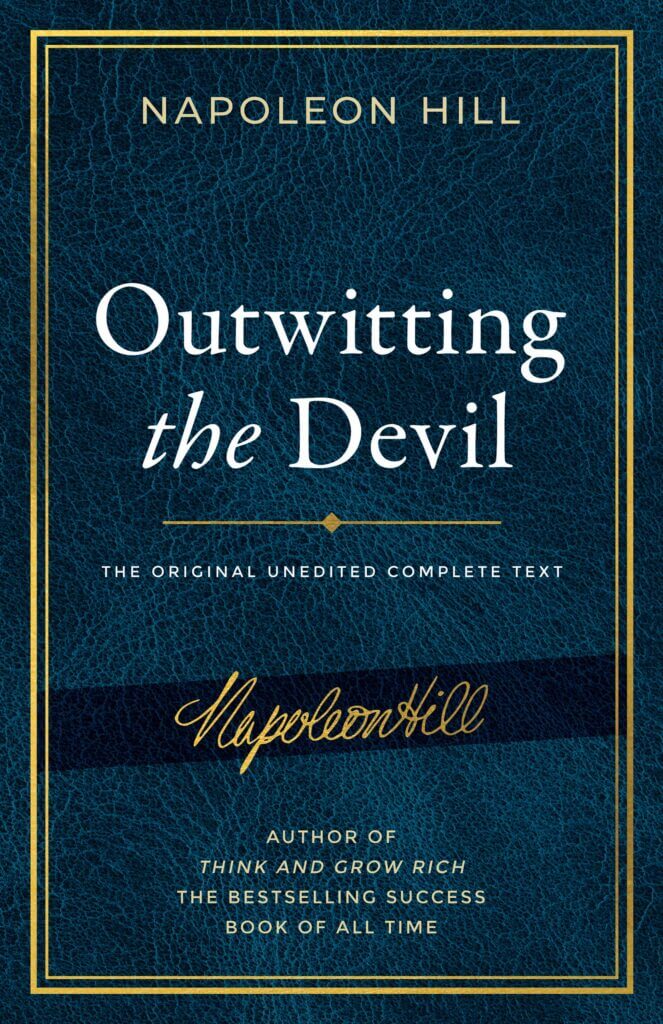
Favorite Quote
“Your only limitation is the one which you set up in your own mind.” — Napoleon Hill
The Book in One Sentence
Outwitting the Devil is an imagined interview between Napoleon Hill and the Devil himself, in which he wrings certain truths from the root of evil, which will help us avoid his grasp and live a good life.
Why should you read it?
Everyone knows Think and Grow Rich by what might have been America’s first self-help author, but no one knows this, arguably much better book. Written in 1938, one year after Hill had released his all-time classic containing the results of interviewing some 500+ extraordinary people, this book holds only one interview — but it is an interview with the devil himself.
Going back and forth with the lord of evil himself, Hill eventually manages to wring certain truths from him, and, slowly but surely, the devil explains how he keeps us from fulfilling our potential. Hill also talks about his personal struggles, and how he finally found the confidence to authentically share his story and spread his message.
This book is fun, insightful, and awe-inspiring. So much, in fact, that Hill’s wife thought it was too controversial for its time — the book was only published 72 years after he wrote it, in 2011. Definitely make some soothing tea to go with this one.
Key Takeaways
- There are only two bases from which we build our entire lives: faith and fear.
- The devil’s goal is to make all humans aimless drifters and if we’re not careful, he quickly succeeds.
- To attain mental, spiritual, and physical freedom, we must follow seven principles and escape the devil’s grasp.
If you want to learn more, you can read our free four-minute summary or get a copy for yourself.
_____
5. The Dip by Seth Godin
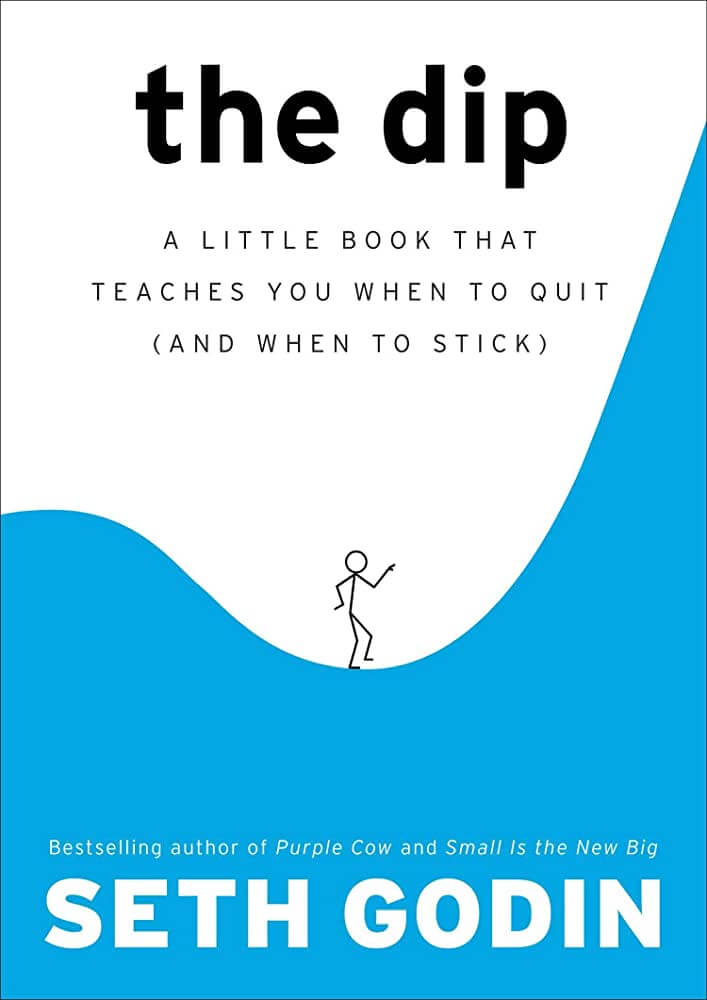
Favorite Quote
“Winners quit all the time. They just quit the right stuff at the right time.” — Seth Godin
The Book in One Sentence
The Dip teaches us that, between starting and succeeding, there’s a time of struggle when we should either pursue excellence or quit strategically while helping us choose between the two.
Why should you read it?
Like Napoleon Hill, Seth Godin is a famous author. Ever heard of Purple Cow? Permission Marketing? Unlike most of his other books, The Dip is not strictly about business. It’s about how you can build a meaningful career and be successful at what you do.
The dip is a simple concept: When we start a new endeavor, we learn a lot quickly. We see early results fast and have fun. And then…it gets hard. Welcome to the dip. Why does it always have to get hard? According to Seth, the dip is what separates average from extraordinary. It’s the trough we must traverse if we want to get a top 1%-job, have top 1%-money, and live a top 1%-life.
More than just telling you to keep pushing, however, the book lays out a framework for when you should quit and when you should “stick.” It’s an immensely powerful read, and it only takes 2 hours or so to complete.
Key Takeaways
- Whatever your goal, you’ll need to confront a dip to succeed.
- The rewards for being first are huge and even unexpected, aim for them!
- If you want to be a winner in the long run, you’ll have to master the art of smart quitting.
If you want to learn more, you can read our free four-minute summary or get a copy for yourself.
_____
6. Ikigai by Yukari Mitsuhashi
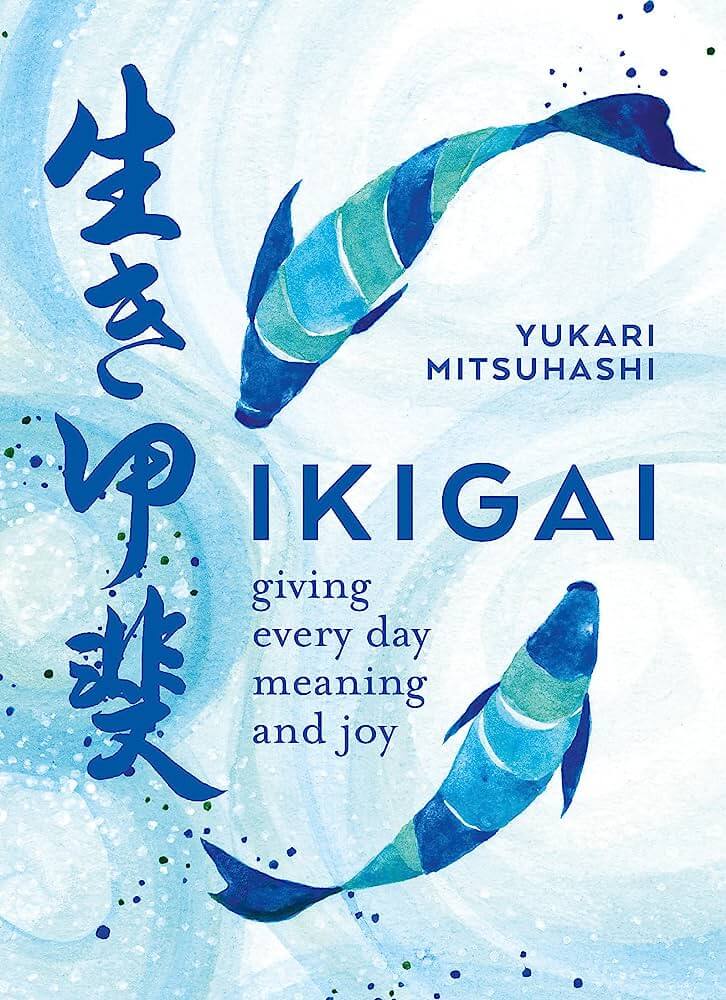
Favorite Quote
“When you find anything even remotely interesting, try not to dismiss it so easily.” — Yukari Mitsuhashi
The Book in One Sentence
Ikigai is a simple and concise explanation of the Japanese concept with the potential to enrich our lives with joy and meaning from sources big and small.
Why should you read it?
Ikigai is a Japanese concept blending meaning and happiness. It means “reason for waking up in the morning.” While there is now a plethora of books on this subject, do not confuse this one for one of the more popular titles by Héctor García and Francesc Miralles. Their book also contains a lot of interesting ideas, but it muddies the concept of ikigai, adding several parts that have nothing to do with it, like whether you can make money with the activity that you enjoy, how focused you are on your health, etc.
Born and raised in Japan, Mitsuhashi explains that the idea is much simpler than that: Your ikigai could be work-related, but it doesn’t have to be. It could be the song of birds in the morning, the smell of fresh coffee, or making your grandma laugh. She also provides some useful questions for finding your “bigger picture” ikigai and shares stories of people who explain how they found theirs. Yet another short, underrated read.
Key Takeaways
- Ikigai as in “meaning of life” is more about daily life than your life as a whole.
- A feeling of ikigai can come from your work, interests, and even the tiniest interactions with the world.
- Ultimately, ikigai is about the actions we take in pursuit of happiness.
If you want to learn more, you can click below or get a copy for yourself.
_____
7. Managing Oneself by Peter Drucker
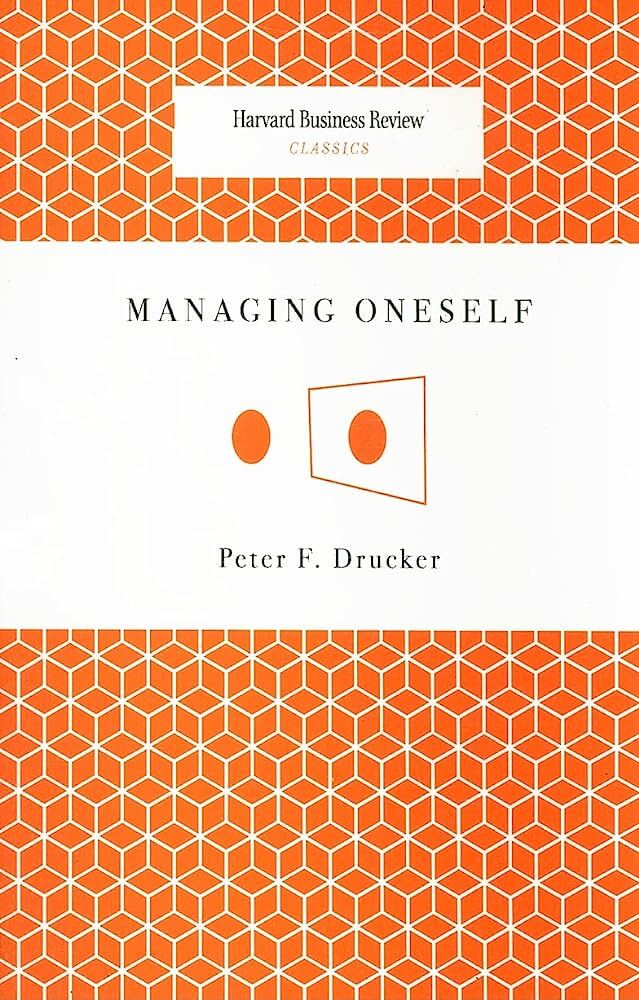
Favorite Quote
“It takes far more energy and work to improve from incompetence to mediocrity than it takes to improve from first-rate performance to excellence.” — Peter F. Drucker
The Book in One Sentence
Managing Oneself is a guide to developing a skillful persona and learning more about your strengths, weaknesses, inclinations, and how you collaborate with others, all while making yourself more knowledgeable about how to thrive in your career.
Why should you read it?
Like some of the other authors on this list, Peter Drucker is quite famous. He’s considered “the father of modern management,” primarily for the ideas he compiled in The Effective Executive. Once again, however, his best title may be one few people know: Managing Oneself is a phenomenal guide to self-awareness at work and in your career.
I got this book as a gift in audio form nearly ten years ago, and the 45-minute listen changed my life. Drucker shares a list of simple but profound questions, like “How do I perform (best)?” “Am I a reader or a listener?” and “What are the strengths I can double down on?” This was originally an article for Harvard Business Review, but Drucker later expanded it, and I’d recommend it to anyone trying to make a difference at and through their work.
Key Takeaways
- Know your strengths and weaknesses by conducting a feedback analysis.
- Understand your communication style and how you work with others.
- Work on your second career to keep yourself engaged and challenged in your working life.
If you want to learn more, you can read our free four-minute summary or get a copy for yourself.
_____
8. The Little Book of Contentment by Leo Babauta
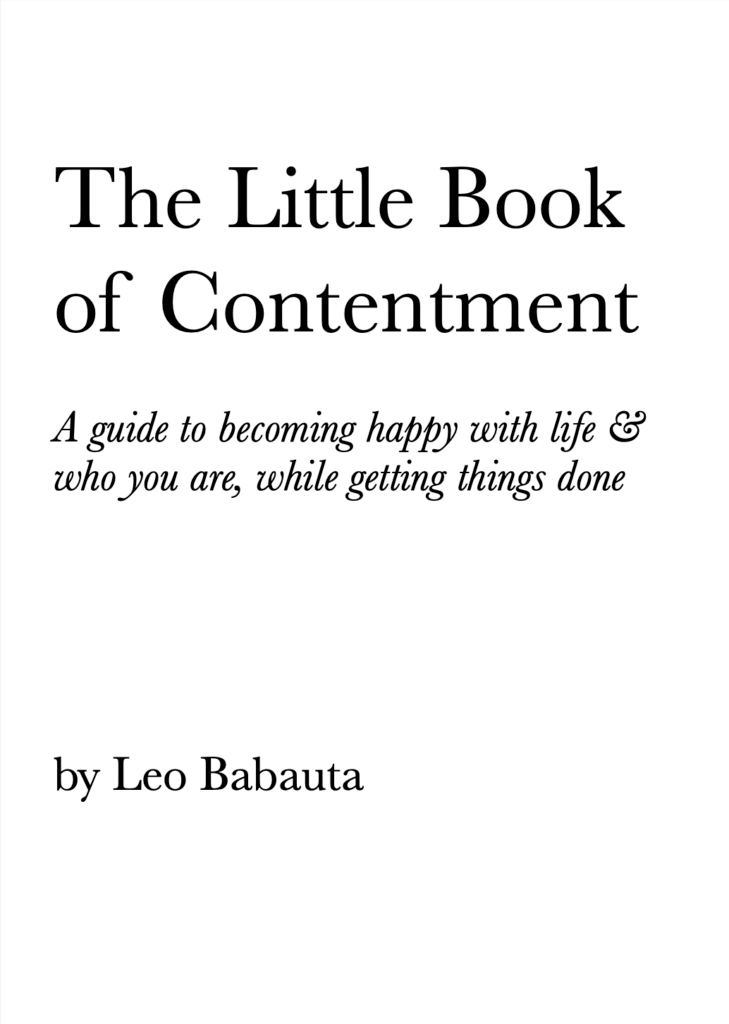
Favorite Quote
“Contentment actually is a much better place from which to start making changes than an unhappiness with who you are.” — Leo Babauta
The Book in One Sentence
The Little Book of Contentment is a short guide to calm, mindfulness, and happiness that stem from within rather than without, taking a minimalist approach at finding — and then securing — our spiritual and emotional wellbeing.
Why should you read it?
Babauta is the blogger behind Zenhabits, an extremely popular blog on mindfulness, minimalism, and behavior. He also wrote more popular books, but this little below-the-radar gem is my favorite. Best of all? It’s free. You can download it on his website.
In just over 100 pages, Babauta explores why discontentment is the root of all suffering, how we can get our inner peace back, and why happiness will naturally follow once we find it. I’ve read it more than once, and whenever you feel like inner turmoil is brewing, I recommend you reach for this book.
Key Takeaways
- Discontent is the root of all problems.
- If you want to be happy, focus on noticing things instead of owning them.
- Self-acceptance is a key part of contentment, and it does not mean we’ll be complacent.
If you want to learn more, you can download the book for free on Leo’s website or buy a copy on Amazon and support both us and him directly along the way.
_____
9. The Authentic Swing by Steven Pressfield
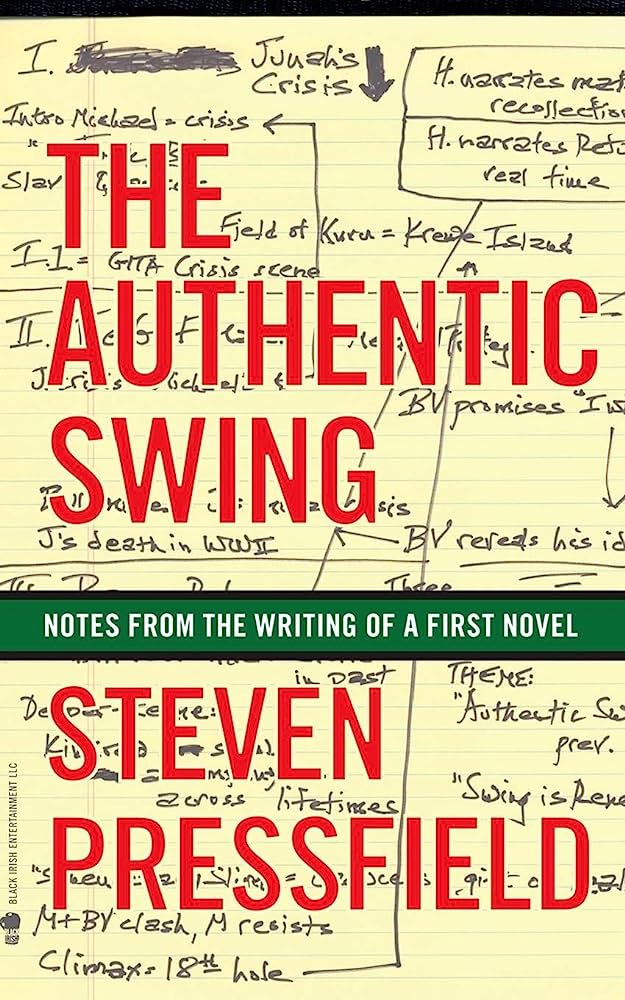
Favorite Quote
“Faldo didn’t defeat Norman. Norman defeated Norman. The golfer’s greatest enemy is himself.” — Steven Pressfield
The Book in One Sentence
The Authentic Swing is a field guide for writers, artists, and anyone hoping to live authentically, drawing lessons from golf about life and creativity learned along the way of completing a bestselling novel about the sport.
Why should you read it?
You know how this goes by now. Everyone knows The War of Art. While the concept of Resistance — the invisible force keeping us from achieving our dreams — is brilliant, I found The Authentic Swing even better. Technically, it’s a book about writing, but really, it’s a book about living — and not just if you’re a maker or hoping to eek out some extra creativity at work.
Beyond giving us a behind-the-scenes look of how Pressfield managed to write his first successful novel, The Legend of Bagger Vance, a story about golf that was made into a Hollywood movie with Matt Damon, Will Smith, and Charlize Theron, this little jewel will show you how to be your truest, most authentic self — and thus live life on your own terms and succeed in your very own way. Highly inspiring and definitely entertaining. Give it a swing!
Key Takeaways
- In golf as in life, each player can only successfully swing one swing: their own.
- Whether you’re a golfer or the hero in the Bhagavad Gita, your biggest enemy is you.
- It’s okay to follow your nose, even if it doesn’t lead you where everyone else points.
If you want to learn more, you can click below or get a copy for yourself.
_____
10. Love Yourself Like Your Life Depends On It by Kamal Ravikant
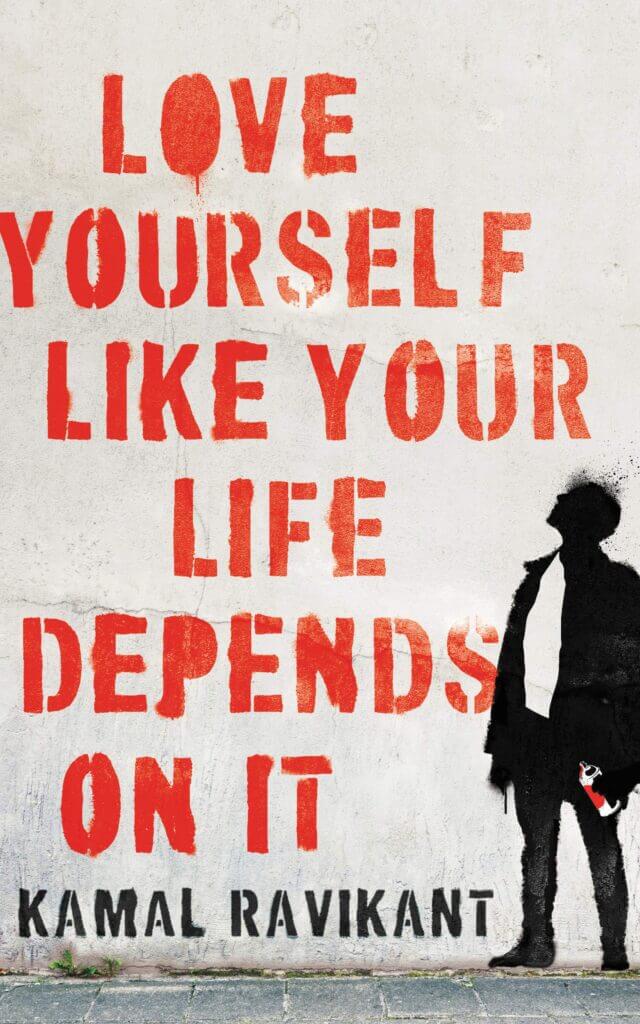
Favorite Quote
“If I loved myself truly and deeply, would I let myself experience this?” — Kamal Ravikant
The Book in One Sentence
Love Yourself Like Your Life Depends On It explains how Kamal Ravikant overcame professional and personal failure thanks to a vow he made to love himself, showing how you, too, can use this simple technique of deep self-compassion to beat adversity and find happiness.
Why should you read it?
One day, Kamal Ravikant found himself unable to get out of bed. He wasn’t unable to move — he just didn’t see the point. His formerly successful Silicon Valley startup had imploded, his girlfriend had left him, and he barely had any money.
At some point, he got so fed up, he staggered to his desk and scribbled a vow to himself on a piece of paper: “I vow to love myself.” This book explains what happened next — and the results are nothing shy of magic. It contains a story, a practice, and a guide to making the practice a habit. Ravikant rewrote and expanded the book in 2020, but I would recommend starting with the shorter, original 2012 edition.
Key Takeaways
- Telling yourself you love yourself will work, even if, at first, you don’t believe it.
- Once your daily self-love practice kicks in, your life will seem to magically get better.
- Even after you’re happy and fulfilled, never stop loving yourself — it’s easy to lose the habit and slip back into negativity.
If you want to learn more, you can click below or get a copy for yourself.
_____
11. The Inner Game of Tennis by Timothy Gallwey
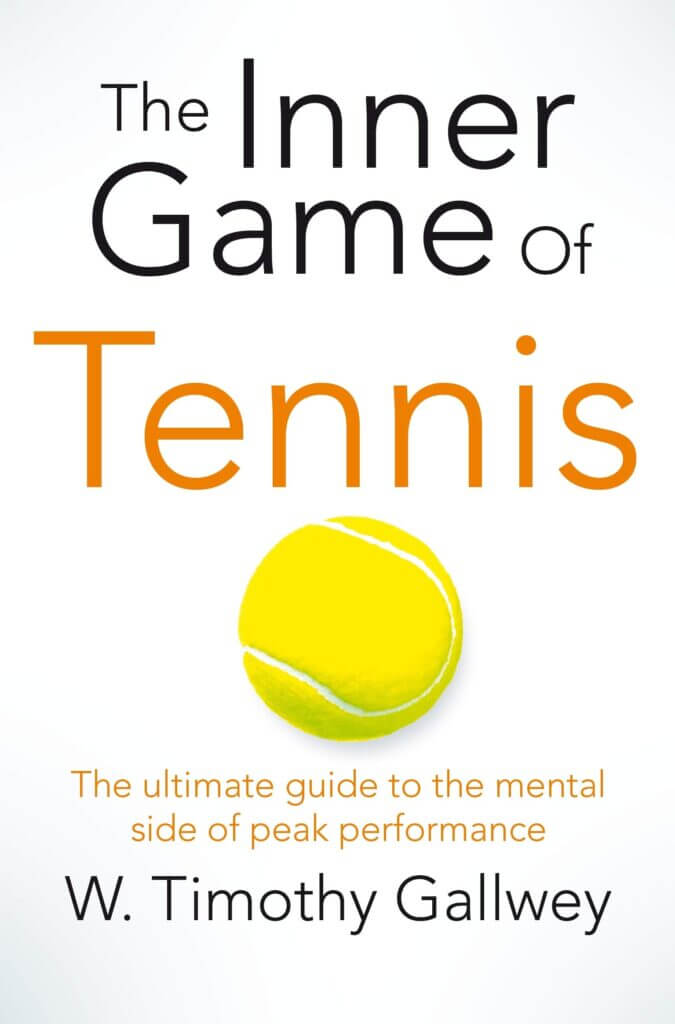
Favorite Quote
“The player of the inner game comes to value the art of relaxed concentration above all other skills, the secret to winning any game lies in not trying too hard.” — Timothy Gallwey
The Book in One Sentence
The Inner Game of Tennis is about the mental state required to deliver peak performance and how you can cultivate that state in sports, work, and life.
Why should you read it?
First published in 1974, you might wonder what an over-50-year-old book about tennis is doing on this list. Trust me, it has earned its place — because it’s not really about tennis, and Gallwey’s method is as sound as it ever was.
Gallwey never made it big in tennis, but he did coach the Harvard student tennis team for a while. Eventually, he developed his own method of teaching, which is almost 100% based in observation, visualization, and imitation. In this quick read, he explains how you can learn anything thanks to mindfulness, and why it’s a much better method than the usual tell-and-repeat approach we practice in school, sports, and offices around the globe.
Key Takeaways
- How our two inner selves interact decides how skilled we are on the outside.
- In order for our performance to flow effortlessly, we must calm Self 1 and have faith in Self 2.
- The inner game applies in all walks of life, not just tennis or even sports in general.
If you want to learn more, you can read our free four-minute summary or get a copy for yourself.
_____
12. On the Shortness of Life by Seneca
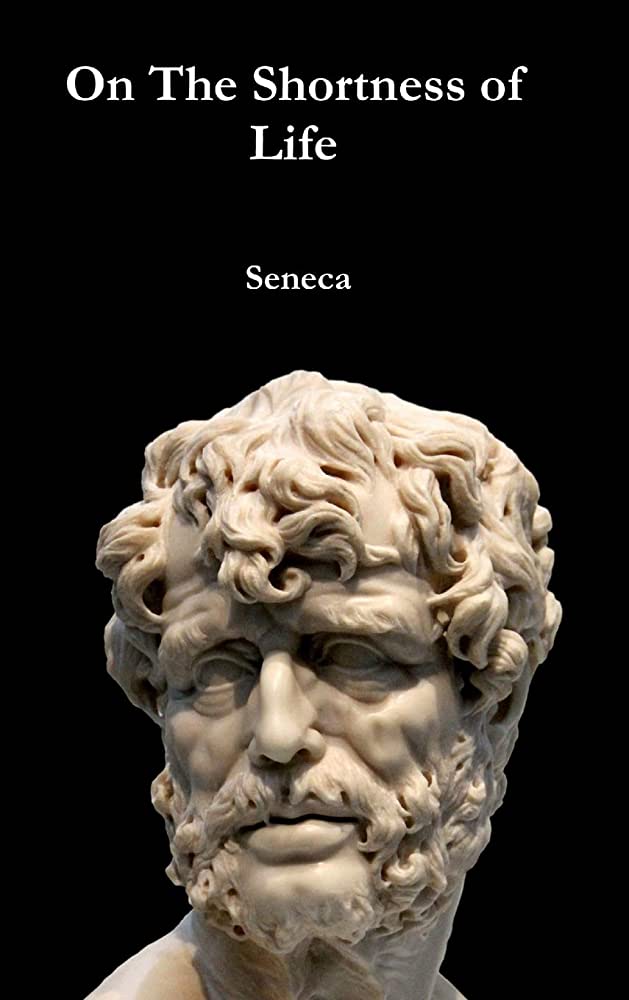
Favorite Quote
“You act like mortals in all that you fear, and like immortals in all that you desire.” — Seneca the Younger
The Book in One Sentence
On the Shortness of Life is a 2,000 year old, 20-page masterpiece by Seneca, Roman stoic philosopher and teacher to the emperors, about time and how to best use it, to ensure you lead a long and fulfilling life.
Why should you read it?
“Life is long if you know how to use it.” Phew. This one hit me hard when I first read it. When people think of ancient Stoic philosopher Seneca, the first thing that comes to mind may be his Moral Letters. Yet once again, it is in this lesser known manifesto that his greatest contribution lies — at least if you ask me.
In around 100 pages, Seneca will completely change your perspective of time. He’ll show you why using your days, weeks, and years well is not just advisable but essential, and you’ll walk away feeling empowered and inspired.
Key Takeaways
- Chasing leisure, luxury and legacy is what makes a long life appear short.
- You can be busy all your life without ever doing something meaningful, so beware.
- Your ability to contemplate and appreciate life will never disappear.
If you want to learn more, you can read our free four-minute summary or get a copy for yourself.
_____
Why Read Nonfiction Books? And Why the Less Popular Ones?
There are a million reasons to read. We read to feel, to forget, and to remember. We read for fun, for joy, and for mystery. But we also read to learn. In a good nonfiction book, in just 200 pages, we can understand what took someone else a lifetime and many painful lessons to fully comprehend.
If learning is one of your primary drivers to read, you must read widely, not just deeply. Imagine a city of one million people in which everyone can only read the same 10 books. If those books are all about inequality and societal problems, that city’s citizens will constantly be bickering and fighting. If those books are full of stories about community, kindness, and helping one another, everyone will get along.
Regardless of their effect, however, with only 10 books, the people in that city will inevitably stop learning. Thinking, creativity, innovation — these activities will come to a screeching halt. Why? Because the pool of ideas is too limited! The best those citizens can do is to rehash the same ideas from the same 10 books, over and over again. They need more input to create better output.
The same dynamic holds true for you as an individual. If you only read the few bestsellers everyone is talking about each year, and you and your friends mostly agree on their premises, none of you will learn! Where’s the discussion? The thinking? The discourse? When you all read different books, however, everyone has something to teach to everyone else.
Popular books are usually popular because they’re agreeable. They’ll rarely teach you something you don’t already know. They might get you social credit but little extra brains. There’s nothing wrong with reading these books, but they shouldn’t be the only ones you consume. Otherwise, you run the risk of becoming like the people in that town: Set in your ways; a rusty thinker.
If you want to stay creative and sharp, be fun to talk to, and to truly never stop learning, read what no one else is reading.
Conclusion
There is one more reason to read widely instead of just deeply: It indulges our natural curiosity — and only by satisfying our desire to learn can we sustain it. There is nothing worse than losing our curiosity, for with it, we will lose our lust for life altogether.
I hope these books have made you a little curious. I also hope you’ll pick up at least one of them and read it in full, especially since they’re all short reads. Here are 12 doors into unknown worlds full of wonder, insight, and inspiration. May you take them only to discover thousands more. Enjoy some of the best nonfiction books. Happy reading!
Other Book Lists by Topic
Looking for more of the best books on various topics? Here are all the book lists we’ve made for you so far:
- The 60 Best Business Books of All Time (Will Forever Change How You Think About Organizations)
- The 20 Best Entrepreneurship Books to Start, Grow & Run a Successful Business
- The 14 Best Finance Books of All Time
- The 21 Best Habit Books of All Time to Change Any Behavior
- The 33 Best Happiness Books of All Time That Everyone Should Read
- The 60 Best History Books of All Time (to Read at Any Age)
- The 7 Best Inspirational Books That Will Light Your Inner Fire
- The 40 Best Leadership Books of All Time to Help You Become a Truly Inspiring Person
- The 31 Best Motivational Books Ever Written
- The 12 Best Nonfiction Books Most People Have Never Heard Of
- The 35 Best Philosophy Books to Live Better and Become a Great Thinker
- The 34 Best Psychology Books That Will Make You Smarter and Happier
- The 25 Best Sales Books of All Time to Help You Close Any Deal
- The 33 Best Self-Help Books of All Time to Read at Any Age
- The 22 Best Books About Sex & Sexuality to Improve Your Love Life & Relationships
- The 30 Most Life-Changing Books That Will Shift Your Perspective & Stay With You Forever
Other Book Lists by Author
Looking for more books by the world’s most celebrated authors? Here are all of the book lists by the author we’ve curated for you:
- All Brené Brown Books, Sorted Chronologically (and by Popularity)
- Jordan Peterson Books: All Titles in Order of Publication + The 5 Top Books He Recommends
- All Malcolm Gladwell Books, Sorted Chronologically (and by Popularity)
- All Michael Pollan Books, Sorted Chronologically (and by Popularity)
- Peter Thiel Books: A Comprehensive List of Books By, About & Recommended by Peter Thiel
- All Rachel Hollis Books: The Full List of Non-Fiction, Fiction & Cookbooks, Sorted by Popularity & the Best Reading Order
- All Ray Dalio Books, Sorted Chronologically (and by Popularity)
- All Robert Greene Books, Sorted Chronologically (and by Popularity)
- All Ryan Holiday Books, Sorted Chronologically (and by Popularity)
- All Simon Sinek Books, Sorted Chronologically (and by Popularity)
- All Tim Ferriss Books, Sorted Chronologically (and by Popularity)
- All Walter Isaacson Books, Sorted Chronologically (and by Popularity)
Last Updated on December 26, 2023